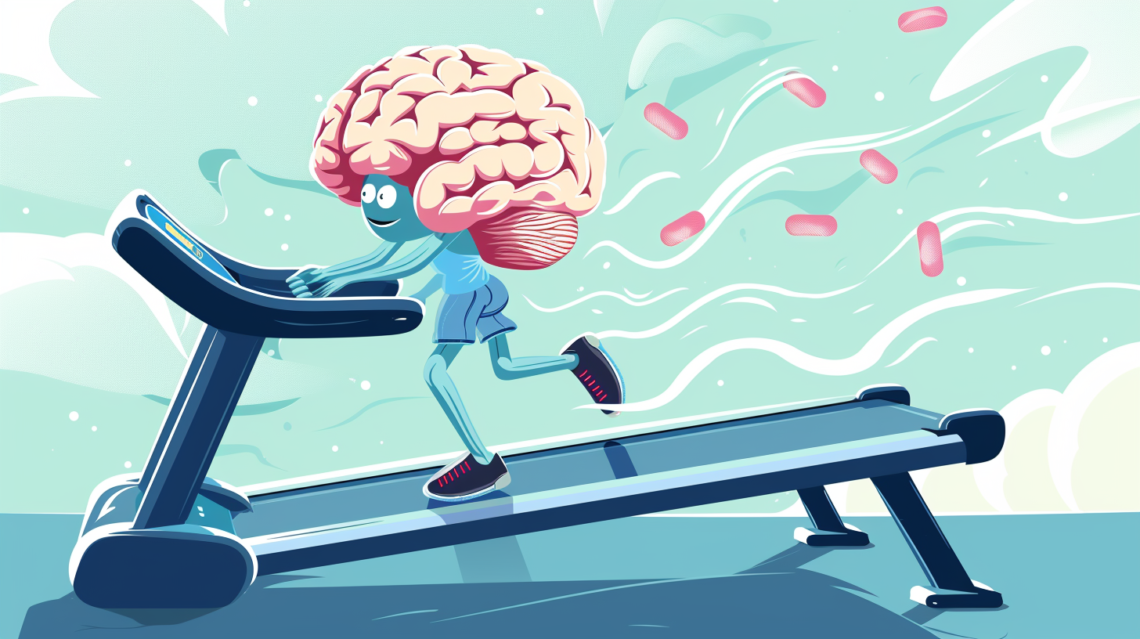
The Impact of Exercise on Brain Health
The correlation between physical exercise and the enhancement of brain health emerges as a subject of paramount importance, engaging the interest of both the scientific community and the general populace. This intricate relationship underscores the notion that engaging in regular physical activity is not solely beneficial for the physical body but also acts as a pivotal catalyst in the promotion of cognitive health, mental wellbeing, and overall neurological resilience. The benefits of exercise extend far beyond the confines of physical fitness, weaving into the fabric of mental acuity, emotional stability, and neuroprotective mechanisms that safeguard against degenerative diseases. Central to understanding this relationship is the acknowledgment of exercise-induced neuroplasticity, a process by which physical activity stimulates the brain’s ability to reorganize itself by forming new neural connections throughout life. This phenomenon is particularly significant in the context of aging and neurodegenerative diseases, where exercise has been shown to mitigate the risk and slow the progression of conditions such as Alzheimer’s disease and Parkinson’s disease, by enhancing brain function and promoting the survival of neuronal cells.
Moreover, the role of exercise in modulating neurotransmitters and endorphins, commonly referred to as the body’s natural mood elevators, underscores the psychological benefits of physical activity. The release of these chemicals during and after exercise contributes to what is often termed the ‘runner’s high’, a state of enhanced mood and decreased anxiety that follows physical exertion. This biochemical shift not only improves mood in the short term but also contributes to long-term resilience against stress and depression, illustrating how exercise can be a powerful adjunct to traditional mental health therapies. The impact of physical activity on cognitive functions such as memory, attention, and executive function further exemplifies the multifaceted benefits of exercise on the brain. Studies have demonstrated that regular engagement in aerobic exercise, in particular, leads to improvements in these cognitive domains, likely as a result of increased blood flow to the brain, which in turn promotes neuronal health and facilitates cognitive processing.
In light of these findings, the recommendation for incorporating exercise into one’s daily routine becomes not just a matter of physical health, but a critical component of maintaining and enhancing cognitive function and emotional well-being. The diversity of exercise modalities, from aerobic activities such as running and cycling to strength training and flexibility exercises, ensures that individuals can find a form of physical activity that not only suits their physical capabilities but also aligns with their personal preferences, thereby increasing the likelihood of sustained engagement. The accessibility of exercise, coupled with its profound benefits for the brain, positions physical activity as an indispensable tool in the pursuit of not only a healthier body but a more vibrant and resilient mind.
The symbiotic relationship between exercise and brain health is a testament to the holistic benefits of physical activity, encompassing improvements in cognitive function, mood enhancement, and neuroprotection. As the body of evidence supporting this relationship continues to grow, it becomes increasingly clear that exercise plays an integral role in fostering not only physical health but also in nurturing a healthy, resilient brain. This understanding elevates the importance of regular physical activity from a mere recommendation to a critical component of comprehensive health and wellness strategies, underscoring the need for a societal shift towards the incorporation of exercise into daily life as a means of promoting optimal health across the lifespan.

